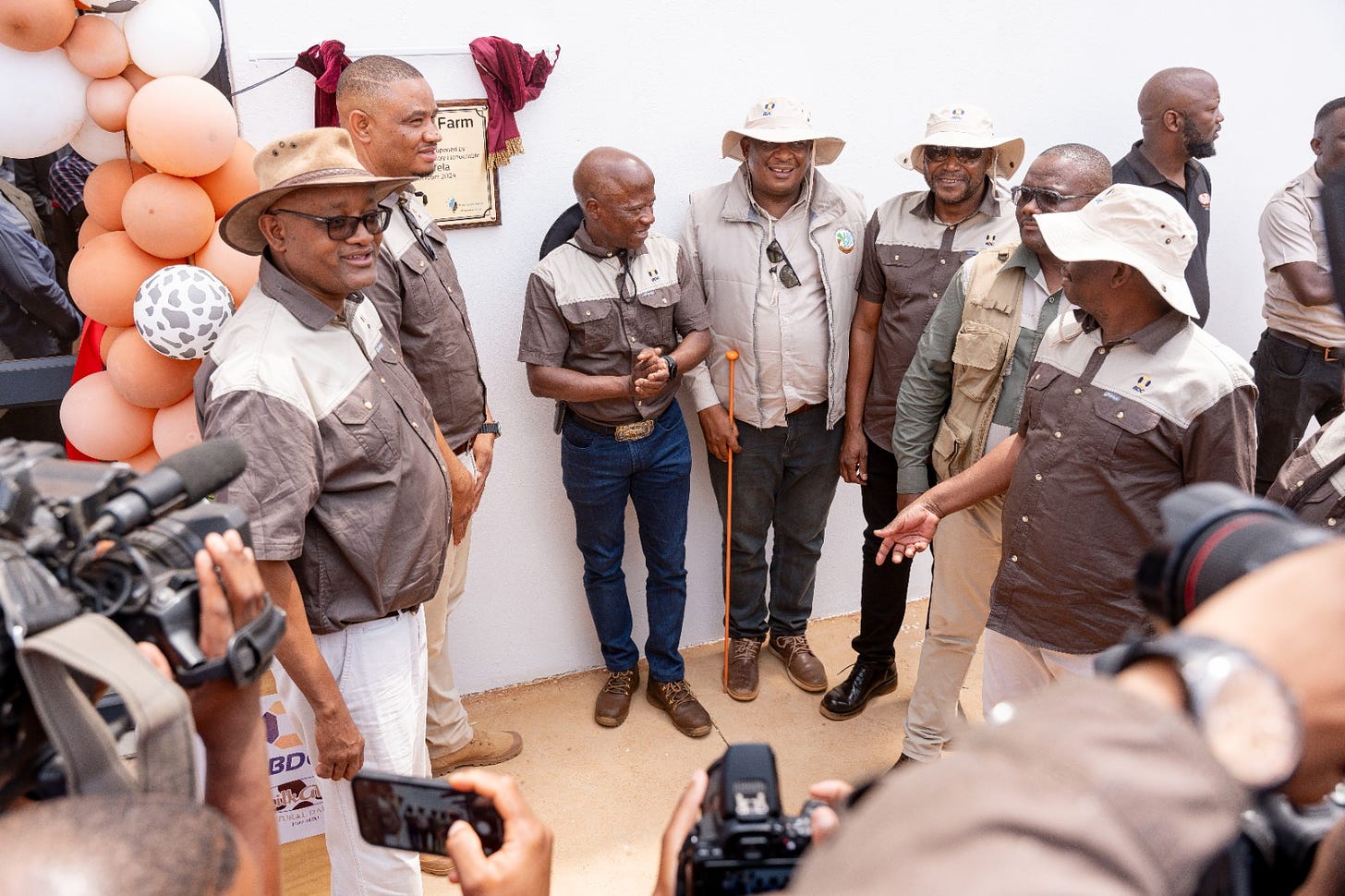Botswana Launches Major Dairy Project to Boost Local Milk Production
As Botswana moves forward, Milk Afric is set to become a cornerstone of the country's agricultural transformation, contributing to a more diversified and resilient economy.
LOBATSE, Botswana— Botswana marked a significant milestone in its agricultural sector with the launch of the Milk Afric Dairy Project on Tuesday, aiming to reduce the country's heavy reliance on dairy imports, writes Tshepiso Gabotlhomolwe, AfricaBrief SADC Correspondent.
The project, led by the Botswana Development Corporation (BDC), was inaugurated in Lobatse, a town with historical significance now poised to become a key player in the nation's agricultural future.
Minister of Trade and Industry Mmusi Kgafela and Assistant Minister of Agriculture Molebatsi Molebatsi attended the event, emphasizing the project's potential to transform Botswana's dairy and agro-processing sectors.
BDC Managing Director Cross Kgosidiile said, "This project marks a transformation for Botswana's dairy and agro-processing sectors," highlighting its alignment with national goals of milk self-sufficiency and economic diversification.
Botswana currently produces only 15% of its national dairy demand.
At full capacity, Milk Afric is expected to produce about 19 million litres of milk annually, meeting around 29.21% of the country's needs.
The project aims to create over 200 direct jobs and indirectly benefit surrounding communities.
It has already imported an initial herd of 254 dairy cows from local farmers, with plans to expand using artificial insemination and embryo transplant technologies.
Molebatsi emphasized the importance of partnerships, stating, "Through our collaboration with Milk Afric, we will build a fully integrated dairy value chain that aligns with Botswana's Reset Agenda and Vision 2036."
The project faced delays due to Foot and Mouth Disease but has pushed forward.
It involves research institutions like the Botswana University of Agriculture and Natural Resources to enhance productivity and explore future regional export opportunities.
Kgafela summarized the project's significance: "Milk Afric is not just a project; it is a catalyst for change. By reducing our reliance on imports, we are creating a more sustainable economy that supports local enterprise."
As Botswana moves forward, Milk Afric is set to become a cornerstone of the country's agricultural transformation, contributing to a more diversified and resilient economy.



